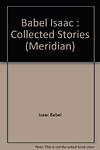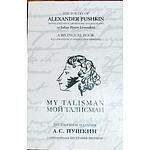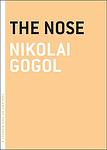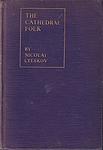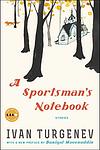The Greatest Russian Books of All Time
Click to learn how this list is calculated.
This list represents a comprehensive and trusted collection of the greatest books. Developed through a specialized algorithm, it brings together 300 'best of' book lists to form a definitive guide to the world's most acclaimed books. For those interested in how these books are chosen, additional details can be found on the rankings page.
Genres
Countries
Date Range
Reading Statistics
Click the button below to see how many of these books you've read!
Download
If you're interested in downloading this list as a CSV file for use in a spreadsheet application, you can easily do so by clicking the button below. Please note that to ensure a manageable file size and faster download, the CSV will include details for only the first 500 books.
Download-
26. Petersburg by Andrei Bely
"Petersburg" is a symbolist novel set in the heart of Russia during the 1905 Revolution. It follows the story of a young man who is given the task of assassinating his own father, a high-ranking government official, by a radical political group. The narrative is a complex mix of politics, family drama, and philosophical introspection, all set against the backdrop of a city in turmoil. The novel is renowned for its vivid and poetic descriptions of the city itself, making Petersburg as much a character in the story as the people who inhabit it.
-
27. Red Cavalry by Isaac Babel
The book is a collection of short stories that delve into the experiences of a Jewish political commissar serving with the Cossack regiment in the Soviet Red Army during the Polish-Soviet War of 1919-1921. Through a series of vivid, often brutal vignettes, the narrative explores the harsh realities of war, the cultural tensions between the Jewish intellectual and the Cossack soldiers, and the moral ambiguities faced by individuals caught in the turmoil of conflict. The stories are renowned for their stark, powerful prose and their unflinching examination of the human condition amidst the chaos of war.
-
28. The Lady with the Dog by Anton Chekhov
"The Lady with the Dog" is a short story that revolves around an adulterous affair between a Russian banker and a young woman he meets while on vacation in Yalta. The narrative explores the protagonists' deepening feelings for each other as they continue their clandestine relationship back in Moscow, struggling with the moral implications of their actions. The story is renowned for its profound character development and exploration of the complexities of illicit love.
-
29. Moscow Petushki by Venedikt Yerofeev
The book is a surreal and satirical narrative that takes the reader on a tragicomic journey aboard a suburban train from Moscow to the small town of Petushki. The protagonist, a disillusioned intellectual and alcoholic, engages in philosophical musings and encounters a variety of eccentric characters, each embodying different aspects of Soviet life. As he delves into ruminations on love, suffering, and the search for meaning amidst the absurdities of existence, the journey becomes a metaphor for the human condition and the societal decay of the USSR, blending dark humor with poignant introspection.
-
30. The Gift by Vladimir Nabokov
"The Gift" is a novel that tells the story of Fyodor, a Russian émigré living in Berlin, who is struggling to establish himself as a writer. The book explores his life, love, and the process of writing, along with his relationships with his fellow Russian émigrés. The narrative also delves into Fyodor's admiration for his father, a renowned explorer who mysteriously disappeared on an expedition. The novel is a profound examination of the creative process, the expatriate experience, and the power of art.
-
31. Resurrection: A Novel by Leo Tolstoy
"Resurrection: A Novel" is a profound exploration of moral responsibility and the possibility of redemption. The story revolves around a nobleman who, in his youth, seduces and abandons a young servant girl. Years later, he encounters her as a prostitute on trial for murder. Overwhelmed by guilt for his role in her downfall, he decides to atone for his sins by dedicating himself to her defense and rehabilitation. The novel grapples with themes of morality, justice, and the human capacity for change.
-
32. The Collected Stories of Isaac Babel by Isaac Babel
This collection of short stories presents a rich tapestry of narratives exploring the harsh realities of war, the complexities of Jewish life in early 20th century Russia, and the human condition. Written by a renowned Russian author, the stories are known for their vivid imagery, poignant themes, and incisive social commentary. The collection includes famous works like "Red Cavalry", a series of stories based on the author's experiences as a journalist during the Russo-Polish War, and "Odessa Stories", which depicts the vibrant yet often brutal life in the city's Jewish ghetto.
-
33. The Poetry of Alexander Pushkin by Alexander Pushkin
This book is a compilation of the works of a renowned Russian poet, showcasing his lyrical genius and profound understanding of human emotions. The collection includes a variety of his poems, from love sonnets to narrative pieces, reflecting the poet's versatility and depth. His mastery of language and ability to capture the complexities of life and love make this collection a timeless piece of literature.
-
34. The Nose by Nikolai Gogol
"The Nose" is a satirical short story that follows the life of a Russian official whose nose leaves his face and develops a life of its own. The nose transforms into a human and starts living as a higher-ranking official than its original owner. The story unfolds as the official tries to regain his lost nose, only to face numerous absurd and comical situations. The narrative is a critique of the social and bureaucratic conditions of 19th-century Russia.
-
35. The Enchanted Wanderer by Nikolai Leskov
"The Enchanted Wanderer" is a collection of short stories that follow the life of a Russian serf, Ivan Flyagin, who is destined to wander forever and never die. Throughout his travels, he experiences a myriad of adventures including becoming a monk, being captured by Tartars, and falling in love. The stories are filled with folkloric elements and offer a vivid depiction of 19th-century Russian society.
-
36. First Love by Ivan Turgenev
This classic Russian novel explores the intense and passionate first love of a 16-year-old boy named Vladimir. While staying at his family's country estate, he becomes infatuated with a 21-year-old princess named Zinaida. Despite her engagement to another man, Vladimir's youthful ardor and naivety lead him to believe he can win her love. The story is a poignant examination of unrequited love, youthful idealism, and the painful transition into adulthood.
-
37. First Circle by Aleksandr Solzhenitsyn
"First Circle" is a gripping narrative set in a Soviet Union labor camp during the Stalin era, where the prisoners are intellectuals and scientists. The story revolves around these individuals who, despite their grim circumstances, engage in political and philosophical debates, striving to maintain their dignity and humanity. The novel explores themes of morality, corruption, and the human spirit, providing a vivid and harrowing depiction of life under Stalinist rule.
-
38. Mother by Maxim Gorky
This novel centers around a working-class Russian woman who becomes involved in revolutionary activities after witnessing the struggles and injustices faced by her son and his comrades. Despite her initial fear and hesitation, she evolves into a dedicated activist, smuggling illegal literature and participating in strikes. The narrative provides a powerful exploration of the personal and societal transformations brought about by political activism, set against the backdrop of pre-revolutionary Russia.
-
39. Pnin by Vladimir Nabokov
The novel is about a Russian émigré, Timofey Pnin, who is a professor at an American college. Pnin struggles with the complexities of life, language, and American culture, while dealing with the traumas of his past in Russia. The book is a series of loosely connected episodes, filled with humor, pathos, and Pnin's endearing confusion. His struggles and triumphs in academia and his search for a home and identity form the crux of the story.
-
40. The Seagull by Anton Chekhov
The play revolves around the complex interplay of love, art, and the pursuit of happiness among a group of characters gathered at a Russian country estate. Central to the narrative is a young aspiring playwright, who yearns for the recognition of his art and the love of a woman, an actress infatuated with a successful writer. The story unfolds as these characters grapple with unrequited affections, artistic ambitions, and the crushing weight of societal expectations, leading to a tapestry of human desires, disillusionment, and the search for meaning in life.
-
41. The Cathedral Folk by Nikolai Leskov
"The Cathedral Folk" is a novel set in 19th-century Russia, revolving around the lives of the people connected to the construction of a grand cathedral. The narrative delves into the intricacies of Russian society, exploring themes of faith, tradition, and the conflicts between progress and the preservation of the old ways. Through a rich tapestry of characters, including craftsmen, clergy, and local gentry, the book examines the human spirit and the complexities of moral choices in a time of social change, all while painting a vivid picture of Russian provincial life with its unique blend of piety, superstition, and the struggle for personal redemption.
-
42. The Golovlyov Family by Mikhail Saltykov-Shchedrin
The book is a bleak portrayal of a declining Russian noble family in the 19th century, focusing on the despotic and miserly matriarch, Arina Petrovna, and her offspring, who are plagued by vice and selfishness. The narrative delves into the moral decay and hypocrisy of the family members, particularly highlighting the cruel and cunning son, Porfiry, as he manipulates and exploits those around him to gain power. Set against the backdrop of a changing Russia, the story serves as a scathing critique of the societal and spiritual failings of the Russian gentry, illustrating the corrosive effects of greed and moral bankruptcy.
-
43. The Artamonov Business by Maxim Gorky
"The Artamonov Business" is a multi-generational saga that follows the rise and fall of a Russian family's business empire from the 1860s up to the Russian Revolution. The narrative explores the dynamics of the Artamonov family, their personal struggles, moral dilemmas, and the impact of their actions on those around them. The story also provides a critical examination of the socio-economic changes in Russia during this period, highlighting the transformation from a feudal society to a more capitalist one and the accompanying moral decay.
-
44. The Government Inspector by Nikolai Gogol
The play is a satirical comedy that exposes the corruption and foolishness of the bureaucracy in a small Russian town. When officials mistake a lowly civil servant for a feared government inspector traveling incognito, they fall over themselves to cover up their town's numerous misdeeds. The visitor exploits the situation for personal gain, accepting bribes and enjoying the sycophantic hospitality of the town's officials, who are oblivious to his true identity. The story unfolds with a series of comedic misunderstandings and ironic twists, culminating in a final revelation that leaves the townspeople facing the consequences of their deception and moral laxity.
-
45. The Real Life of Sebastian Knight by Vladimir Nabokov
"The Real Life of Sebastian Knight" is a novel centered around the protagonist's quest to understand and write a biography about his deceased half-brother, a famous author. However, as he delves deeper into his brother's life, he encounters numerous obstacles and confusions, including misleading information, false leads, and the challenge of distinguishing between the man and his literary persona. Ultimately, the protagonist's journey becomes a profound exploration of identity, truth, and the blurred line between fiction and reality.
-
46. The Life Written By Himself by the Archpriest Avvakum
"The Life Written By Himself" is an autobiographical account by the Archpriest Avvakum, detailing his life as a religious figure in 17th-century Russia. The book chronicles his struggles, including his conflicts with the Russian Orthodox Church, his imprisonment, and his eventual execution. Avvakum's narrative provides a unique perspective on the religious and political climate of the time, showcasing his unwavering devotion to his faith and his unwavering determination to uphold his beliefs, even in the face of persecution.
-
47. The Life Of Arseniev by Ivan Bunin
"The Life of Arseniev" is a poignant and introspective novel that explores the life of Arseniev, a middle-aged man grappling with the complexities of love, desire, and the passage of time. Set against the backdrop of pre-revolutionary Russia, the story delves into Arseniev's relationships with various women, his struggle to find meaning and fulfillment, and his eventual realization of the fleeting nature of human existence. With lyrical prose and a deep understanding of human emotions, the author captures the essence of a man's inner turmoil and the universal themes of love, loss, and self-discovery.
-
48. Evenings On A Farm Near Dikanka by Nikolai Gogol
"Evenings On A Farm Near Dikanka" is a collection of short stories that take place in a small Ukrainian village. The stories are filled with folklore, supernatural elements, and humorous anecdotes, depicting the lives and adventures of the villagers. Through vivid descriptions and lively characters, the book offers a glimpse into rural life in 19th-century Ukraine, blending reality with fantasy in a captivating and entertaining manner.
-
49. Summer in Baden-Baden by Leonid Tsypkin
"Summer in Baden-Baden" is a unique blend of fact and fiction that intertwines the author's own travels to Leningrad with a reimagining of Fyodor Dostoevsky's summer in Baden-Baden, Germany. The narrative shifts between the two journeys, exploring themes of obsession, identity, and the power of literature. The author's fascination with Dostoevsky serves as a lens through which he examines his own life and experiences as a Jew in Soviet Russia, while also providing a fresh perspective on the famous Russian author's life and works.
-
50. A Sportsman's Notebook by Ivan Turgenev
"A Sportsman's Notebook" is a collection of vignettes and short stories that offer a rich portrayal of 19th-century Russian rural life and landscapes, as observed by a nobleman with a passion for hunting. Through his excursions into the countryside, the narrator encounters a diverse array of peasants and landowners, revealing the social injustices and feudal systems that define their existence. The work is notable for its detailed natural descriptions, its empathetic character studies, and its subtle critique of the era's social hierarchy, which would eventually contribute to the rise of reformist thought in Russia.
Reading Statistics
Click the button below to see how many of these books you've read!
Download
If you're interested in downloading this list as a CSV file for use in a spreadsheet application, you can easily do so by clicking the button below. Please note that to ensure a manageable file size and faster download, the CSV will include details for only the first 500 books.
Download





